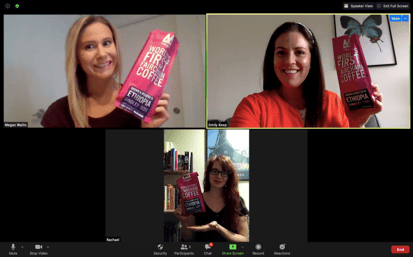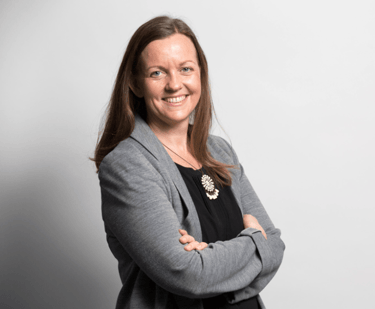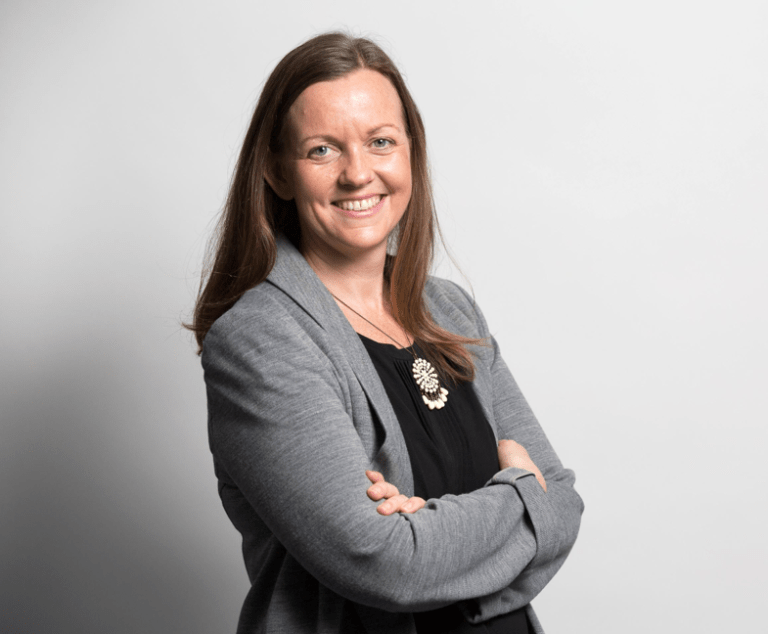The single most differentiating feature of the Trinity Executive MBA is the focus on live action learning. Students gain experience in new industries and organisations, solving real-world business problems. Working in groups, you work directly with and deliver solutions to the senior management teams of organizations via three Company Projects.
The Social Enterprise Project (SEP) company project module is an opportunity for MBA teams to apply their business skills and knowledge to a challenge faced by a Social Enterprise. The SEP is designed to be mutually beneficial, as the Social Enterprise benefits from the report and presentation produced by the teams.
Module coordinator and Assistant Professor of Social Entrepreneurship, Dr. Sheila Cannon, shares an insight into innovation in education to combine the shift in the way we do business with a MBA student team project and the social enterprise Moyee Coffee: Fair Supply Chains.
Dr. Sheila Cannon
A New Brew in Business Practice
"Gone are the days when externalities could be ignored. Externalities are the social and environmental consequences of business operations. Such as the emissions from a commercial jet. The wastewater from a clothing company. Every company has a social and environmental impact, and we (consumers, citizens, policy makers, CEOs) are becoming more and more aware and concerned about those impacts.
In Europe it is now mandatory for companies to report not only their financial bottom line, but also their ESG: environmental, social and governance performance. Corporate Social Responsibility (CSR) policies no longer have to be justified as cost-saving; they are a taken-for-granted part of businesses.

Thus business schools have to prepare their graduates to understand the social and environmental impacts of business. One way we do this is by working with social enterprises. By addressing a challenge that they are facing, we learn how to balance social-environmental and financial goals.
Introducing Moyee Coffee: a social enterprise with a mission to improve the work and living standards across the supply chain. Operations in Ethiopia and Kenya focus on sustainable, forest-grown coffee that is picked, roasted and packaged locally, ahead of shipment to Europe. It is a certified B-corporation and Fair Chain supplier.
A Trinity MBA team worked with Moyee over the summer as. part of their Live Company Project to help them transition from primarily B2B to B2C. In other words, Moyee used to supply mainly offices with coffee, but when the big Covid-driven switch to working from home happened, Moyee had to shift its focus to the drinking-coffee-at-home market.
Meeting The People Behind the Supply Chain
The MBA team, after learning all about social enterprise, set to work conducting market research to help Moyee build up its base of at home customers. Their research showed that 41% of consumers are willing to pay more for sustainable products, particularly young professionals.
“The whole team fully engaged with Moyee’s mission to support the faces and people behind the coffee blockchain. That personal connection to the farmers and growers made it much more than an assignment for us.” Emily Keep, Trinity MBA graduate 2020, Director of Technical Product, Salesforce.

Trinity MBA students during an online working session
After gathering data, conducting surveys, and putting together some marketing ideas, the MBA team linked Moyee up with the Covid Intern programme to help implement the ideas by linking them up with a recent graduate. Only a few months on, and Moyee is already seeing the results.
“The MBA team has made a huge difference – it was invaluable to get their perspectives on how we should adapt to the sudden working from home shift,” says Shane Reilly, CEO, Moyee Coffee.
As we head into Capitalism 3.0 – a revised version of our economic system that doesn’t destroy the planet and result in extreme inequality, as per the book by Peter Barnes – are we ready to change our ways? Do we know if the products we purchase rely on the exploitation of people from poorer countries than ours? How do we know the products we are buying aren’t contributing to the destruction of the earth’s remaining rainforests?
Fair supply chains: Business schools have an important role to play in this change.
This article was originally published on The Council of Business & Society, an international alliance of top business schools which Trinity Business School is a part of.



